Doctor of Medical Sciences Develops Nonstigma Communication Guidelines for Doctors in Primary Care
Doctor of Medical Sciences Develops Nonstigma Communication Guidelines for Doctors in Primary Care
Located in the Postgraduate Hall, 3rd Floor of the Postgraduate Building, Udayana University, an open Doctoral Promotion exam was held with the candidate for promovenda, dr. Ni Made Sri Dewi Lestari, S.Ked., M.Kes., with the dissertation title "Development of Nonstigma Communication Guidelines for Doctors in Primary Care in Handling Obesity in Bali". (1/23/2025)
Obesity stigma is a discriminatory action and ideology against individuals because of their size and weight. Obesity stigma in health services is unpleasant or discriminatory treatment carried out by health workers to patients with obesity. The incidence of obesity stigma in health services is quite high in almost all countries and can have negative impacts on psychological, physical and social conditions. The purpose of this study is to develop nonstigma communication guidelines for doctors in primary care in handling obesity and secondary diseases due to obesity to be better.
This study uses the Mix Method The Explanatory Sequential Design design, which is preceded by quantitative research and then continued with qualitative research. The quantitative stage uses a cross-sectional analytical design that aims to determine the perception of obesity stigma and the factors that influence it and the relationship between the perception of obesity stigma and self-esteem, eating behavior, and delays in utilizing health services, with a sample of 217 people. While the qualitative stage uses a phenomenological design that aims to explore the experience of obesity stigma in patients and the perception of obesity stigma by doctors in primary health care, with a total of 23 informants. The final stage of the study is the development of a non-stigma communication guidebook with the ADDIE model, based on Attribution Theory and Implicit Bias Theory. Quantitative statistical analysis uses the Spearman rho non-parametric hypothesis test and the multiple logistic regression multivariate test. Qualitative data analysis with thematic analysis using Nvivo 12 Pro software. The results of quantitative research found that the incidence of obesity stigma perception in primary health care was 37.3%, there was an influence of age, occupation, and obesity level on the perception of obesity stigma, the perception of obesity stigma in health care was also found to have a significant relationship (p < 0.05) with uncontrolled eating and delay in utilization of health care services, but did not have a significant relationship (p> 0.05) with self-esteem and emotional eating. The results of qualitative research obtained 6 themes, namely: 1) the meaning of obesity for obese patients is: the impact on physical health, unpleasant treatment, negative feelings, and the desire to lose weight. 2) the experience of patient stigmatization by doctors in the form of: the doctor's unfriendly attitude, offensive words, being blamed, and being intimidated. 3) patient reactions to the experience of obesity showed positive and negative reactions. 4) patient views for improving services in the form of improving education by doctors, improving doctor's words, and improving doctor's attitudes. 5) doctor's services to patients with obesity, in the form of: the same form of service, discussion of obesity, education related to obesity, and delivery of the term obesity. 6) Doctors' responses to obesity stigma: most doctors are not familiar with the term obesity stigma, almost all doctors have never received education / training related to communication about obesity. The development of a non-stigma communication guidebook entitled "EMPOWERING Communication Encourages Positive Change in Patients with Obesity" was declared valid by experts (material, media and language) and is suitable for use in the field and is stated as useful by users.
The conclusion of this study is that the incidence of obesity stigma perception in primary health care is quite high, there is an influence of age, occupation, and obesity levels on obesity perception, there is no relationship between obesity stigma perception and self-esteem, there is a relationship between obesity stigma perception and uncontrolled eating, there is no relationship between obesity stigma perception and emotional eating and there is a relationship between obesity stigma perception and delaying the use of health services, and the non-stigma communication guidebook was declared valid by experts. It is necessary to test the guidebook in a larger group and further intervention research to see the effectiveness of the non-stigma communication guidebook.
This test was led by the Vice Dean for Student Affairs and Information, FK Unud, Prof. dr. I Made Ady Wirawan, S.Ked, MPH., Ph.D., with a team of examiners:
1. Prof. Dr. Pande Putu Januraga, M.Kes., Dr, PH (Promoter)
2. Prof. Dr. Dr. I Wayan Weta, MS., Sp.GK (Copromoter)
3. Prof. dr. I Made Ady Wirawan, S.Ked, MPH., Ph.D (Co-Promoter II)
4. Prof. Dr. dr. Ketut Suastika, Sp.PD-KEMD
5. Prof. Dr. dr. I Made Jawi, M.Kes
6. Dr. dr. Made Ratna Saraswati, Sp.PD., KEMD., FINASIM
7. Dr. Luh Seri Ani, SKM., M.Kes
8. Dr. Ni Ketut Sutiari, SKM., M.Si
9. Dr. dr. I Made Muliarta, S.Ked., M.Kes
10. Dr. drh. I Made Subrata, M.Erg
While the academic invitees are:
1. dr. Ni Wayan Arya Utami, M.App.BSc., Ph.D
2. Dr. dr. Made Kurnia Widiastuti Giri, M.Kes., PGDipl.MTHM
3. Dr. dr. Komang Hendra Setiawan, S.Ked., M.Kes
4. Dr. dr. Ni Made Sri Nopiyani, MPH
5. Dr. dr. Putu Adi Suputra, S.Ked
In this exam, Dr. dr. Ni Made Sri Dewi Lestari, S.Ked, M.Kes., was declared to have passed as the 443rd Doctoral Graduate of the Doctoral Program in Medical Sciences, Faculty of Medicine, Udayana University with a very satisfactory predicate.

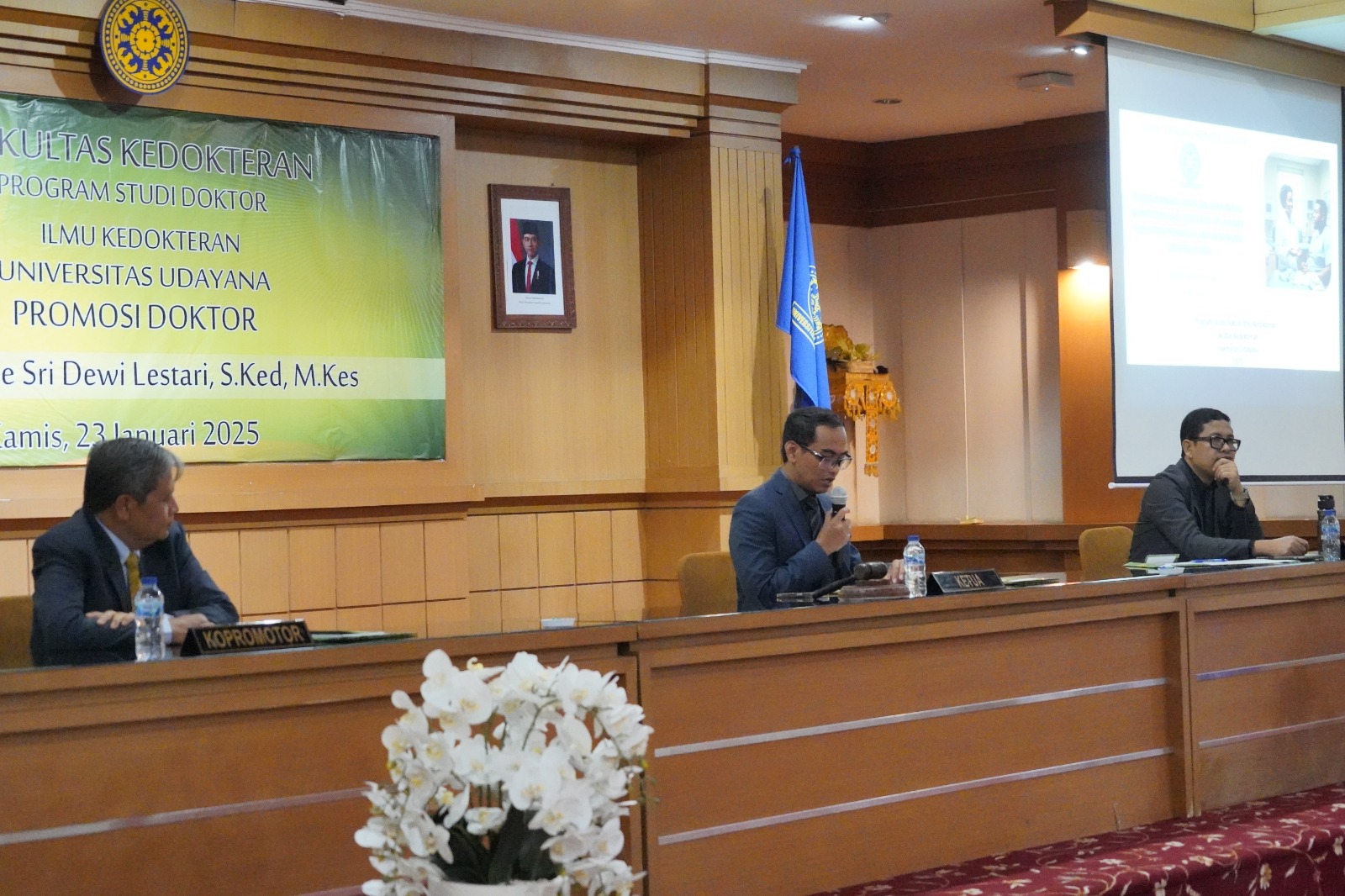
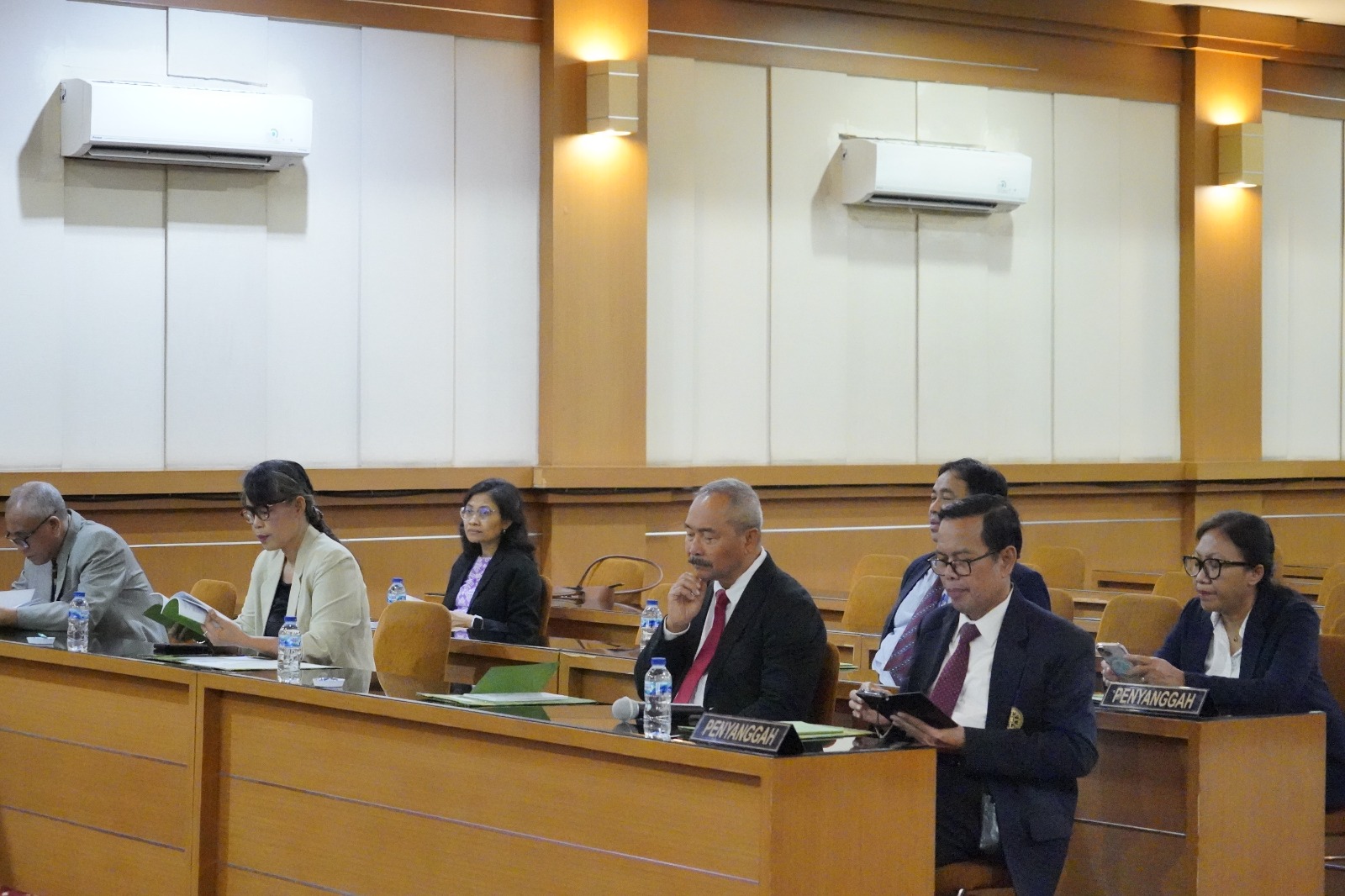
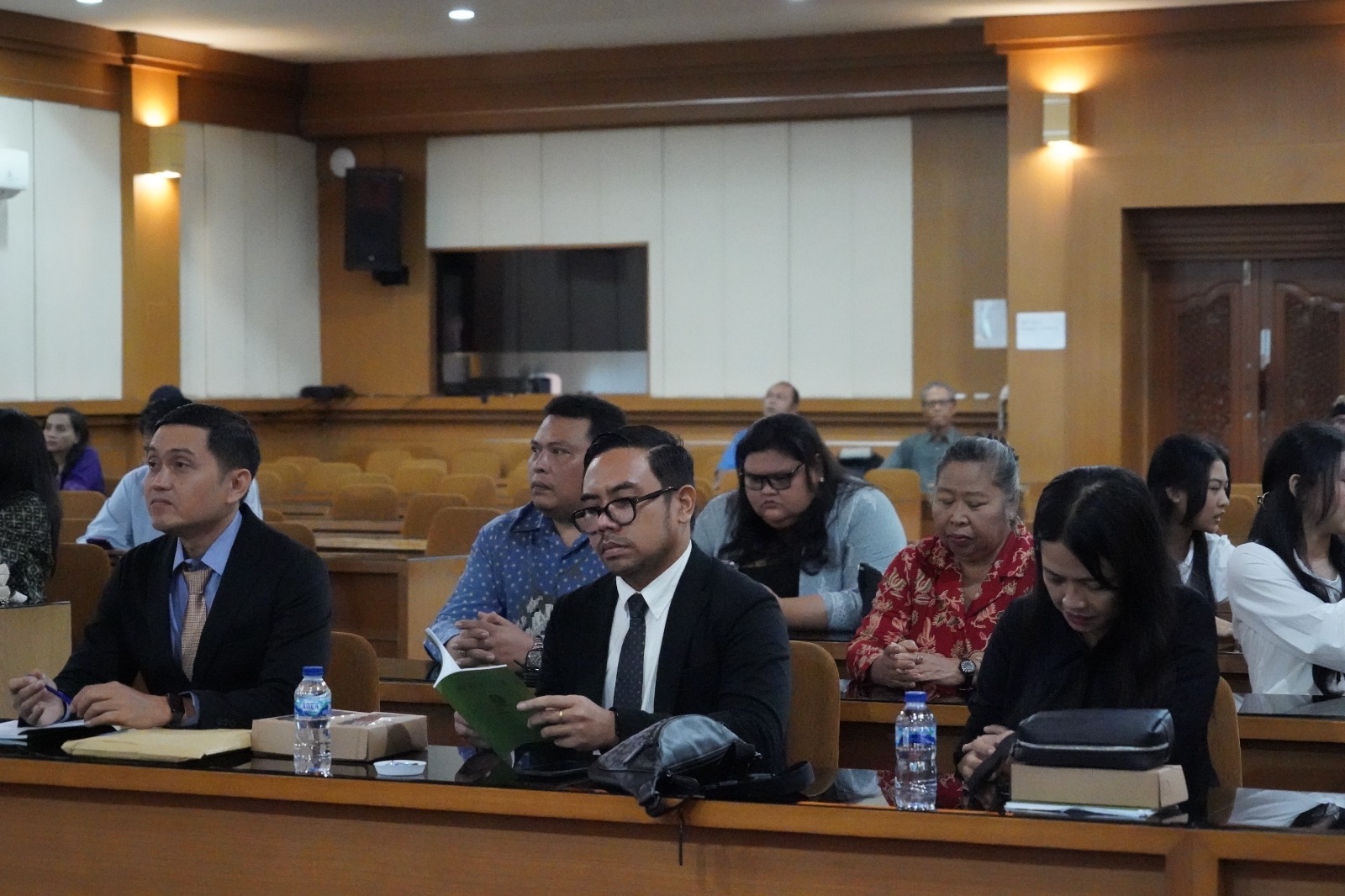
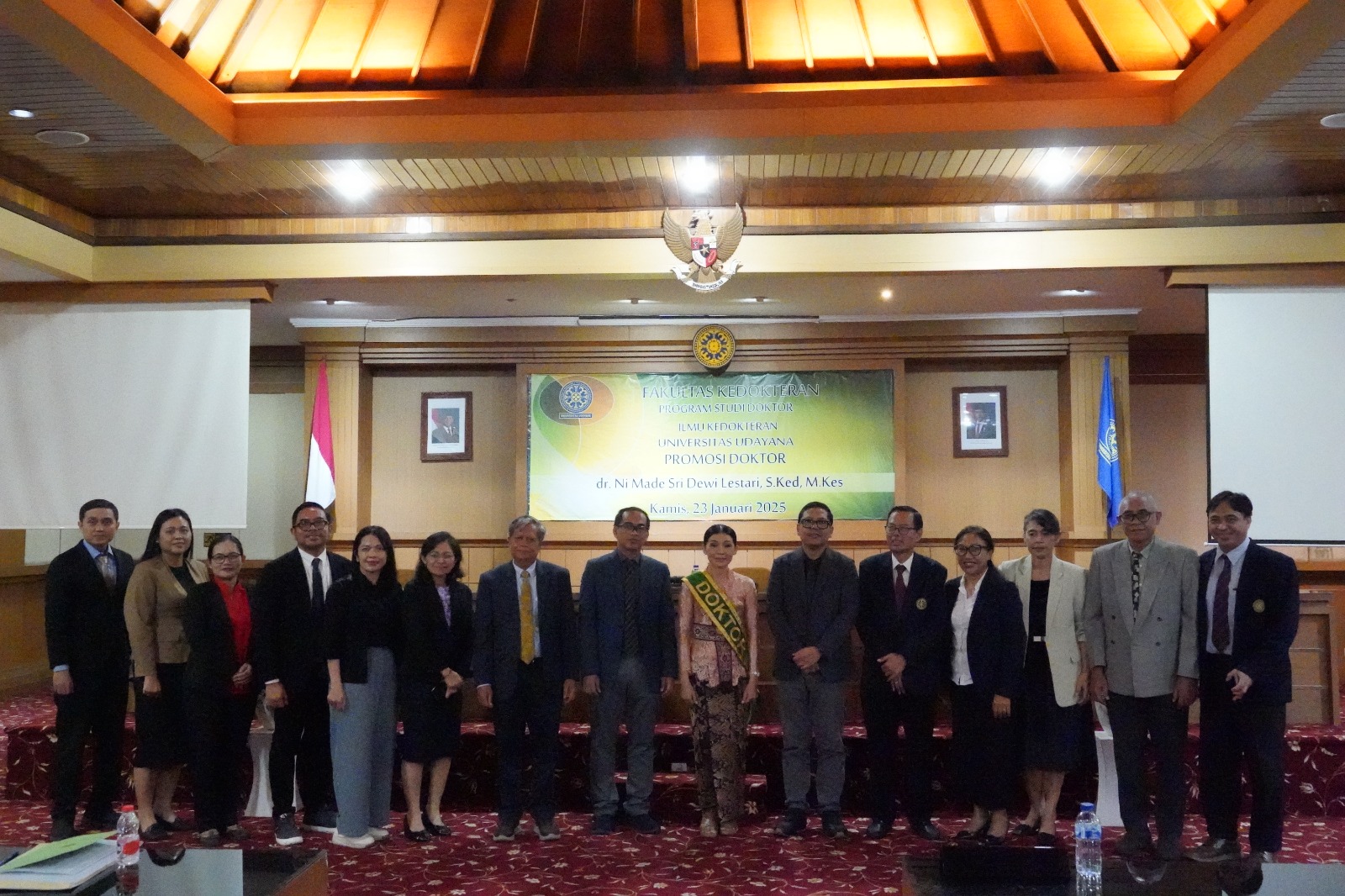
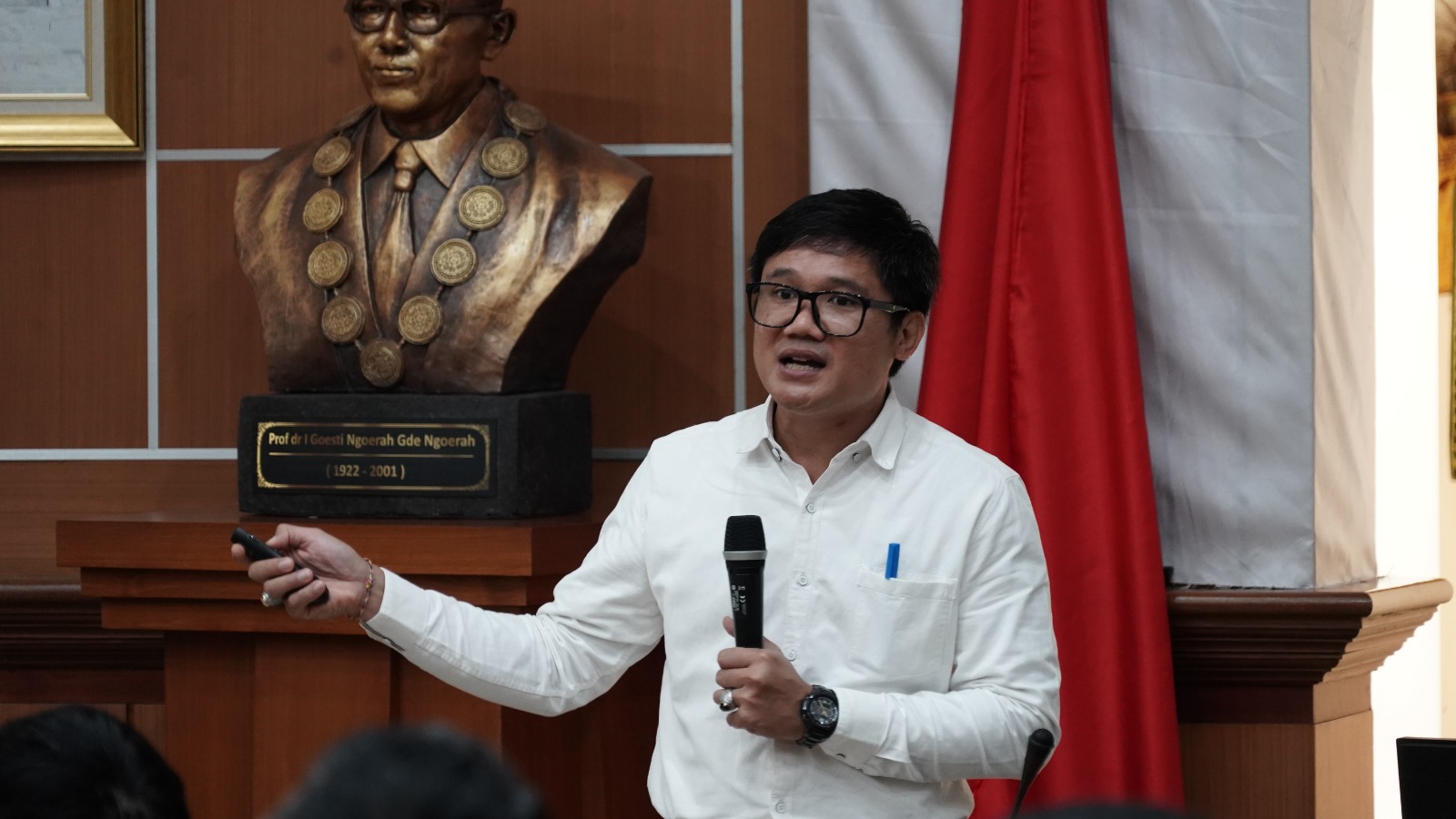

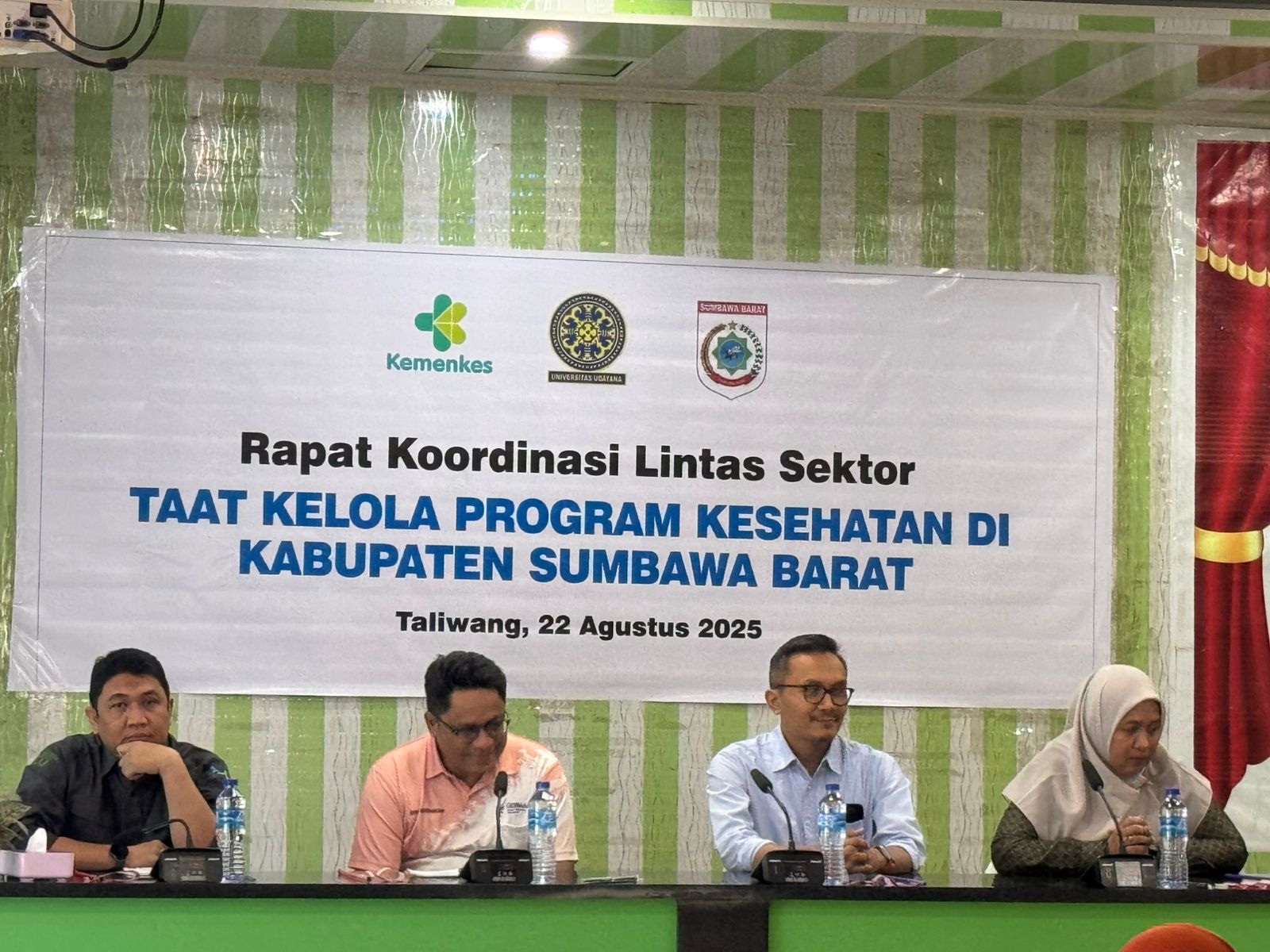
UDAYANA UNIVERSITY